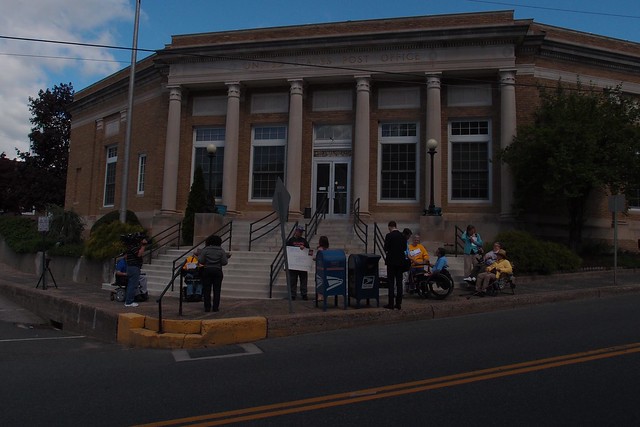Reflections on the Past Green Year
by Owen Charles, Shoreline Green Party
A little over a year ago, we obtained official chapter-hood for our Shoreline Green Party. It was a joyous thing, springing forth from a rather unjoyous series of disappointments. Many were dismayed by the weakening of democracy in America, the championing of corporate interests by both major parties, and the 2016 election with its home-grown election fraud.
So we came together to see if the grass was greener on the other side—and it was!—Fertile with ideas and fresh perspectives, and inquisitive minds;— Open to citizen participation, running for office, and a shared and self-determined people’s agenda.—Not your typical political party owned, operated, bought and sold by large corporate interests.
On Feb. 26, 2017, we launched with the aim to “start preparing to run candidates, get involved an important issue and legislation advocacy and upturn the status quo of a troubled political system as an official regional chapter of the Green Party!”
I’ll briefly reflect on what we have done in a year, with pride and congratulations to a smart, vibrant, friendly, hard-working, dedicated, growing Shoreline Green Party team! Many more details can be found on our Facebook @shorelinegreenparty and website shorelinegreenparty.org.
- Visibility and Activism: We organized gatherings and protests (net neutrality, immigrants rights, May Day and others), marched in the Guilford Parade. Website, Facebook, Twitter, Youtube videos (check it out at Shoreline Green Party on Youtube).
- Inspiration and Solidarity: Our first annual Songs of Solidarity in Oct. 2017 at the Guilford Library was standing room only (70+), amazing performances and sing-alongs with a line-up of incredible local artists (stay tuned for “Second Annual!”). We sponsored a showing of “Requiem for the American Dream” at Guilford Library.
- Local Democracy in Action: Organized public support to stop privatization and development of the Academy School in Madison, ban fracking waste in a number of towns, and stop the development of a waste dump in Clinton.
Our first four candidates in 2017, in Clinton and Madison, each had impressive showings with over 1,100 votes. We now have four local candidates for this Nov. 6! with key campaign support and volunteering from dozens of people.
Clinton members have led the way in getting appointed to Town commissions and boards.
If you are interested in these kinds of actions, please join with us in the Shoreline Green Party! We welcome participants from all surrounding areas including New Haven and environs and are working with other local groups and welcome doing that more.
Please reach out to us by joining our Facebook group @shorelinegreenparty or contacting me! Owen Charles [email protected] or [email protected]; phone (203) 421-1094.


